If you're out of powdered mustard, the best immediate substitutes are: 1) Dijon mustard (use ½ tsp per ¼ tsp powdered mustard), 2) Yellow mustard (use equal parts), and 3) A mix of turmeric and vinegar (1:1 ratio). These provide the closest flavor profile and functional properties for most recipes. Here's exactly how to use them based on your specific cooking needs.
Top 3 Powdered Mustard Substitutes with Exact Ratios
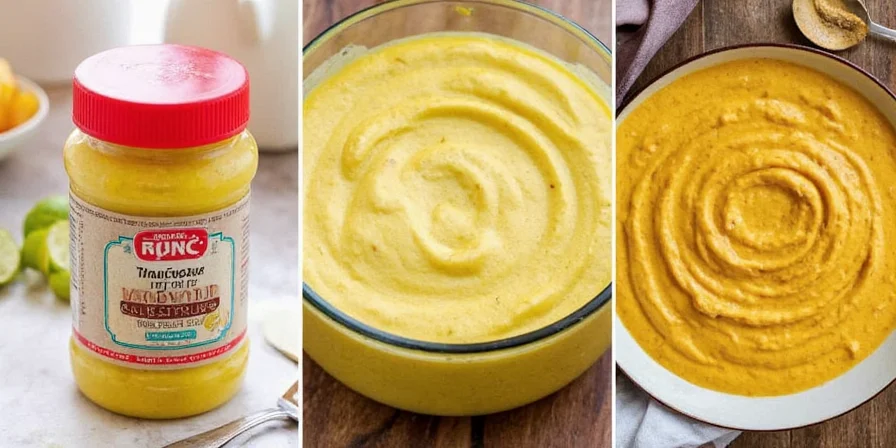
When you're in a kitchen emergency, these three substitutes deliver reliable results with precise measurements:
- Dijon Mustard - Best for sauces and dressings
- Ratio: ½ tsp Dijon per ¼ tsp powdered mustard
- Liquid adjustment: Reduce other liquids by ⅛ tsp per substitution
- Best applications: Salad dressings, cheese sauces, marinades
- Why it works: Contains similar mustard seed compounds with vinegar base that activates the same flavor compounds as dry mustard
- Yellow Mustard - Best for everyday cooking
- Ratio: Equal parts (1 tsp yellow mustard = 1 tsp powdered mustard)
- Liquid adjustment: None needed in most cases
- Best applications: Burger recipes, deviled eggs, BBQ sauces
- Why it works: Made from the same base ingredients with mild flavor profile that won't overpower dishes
- Turmeric + Vinegar Mix - Best emergency solution
- Ratio: ¼ tsp turmeric + ¼ tsp vinegar per ¼ tsp powdered mustard
- Liquid adjustment: Reduce other liquids by ⅛ tsp
- Best applications: Soups, stews, and dishes where color matters more than heat
- Why it works: Turmeric provides color while vinegar activates the same chemical compounds that create mustard's tang
When Powdered Mustard Matters Most: Critical Applications
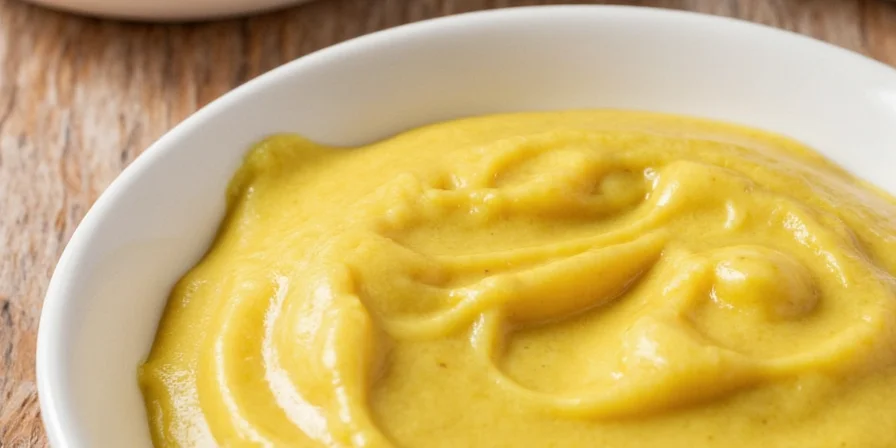
Powdered mustard plays two crucial roles in cooking that many substitutes fail to address:
- Emulsification - Helps bind oil and water in dressings and sauces
- Flavor activation - Creates that distinctive tang when mixed with liquid
For these critical applications, use these specialized substitutions:
- For emulsifying dressings: Mix 1 tsp Greek yogurt + ¼ tsp vinegar per ¼ tsp powdered mustard
- For baking recipes: 1 tsp prepared mustard + ⅛ tsp cornstarch per ¼ tsp powdered mustard (reduces liquid separation)
- For meat marinades: 1 tsp whole grain mustard + ½ tsp water per ¼ tsp powdered mustard
Substitute Comparison Chart: Choose the Right Replacement
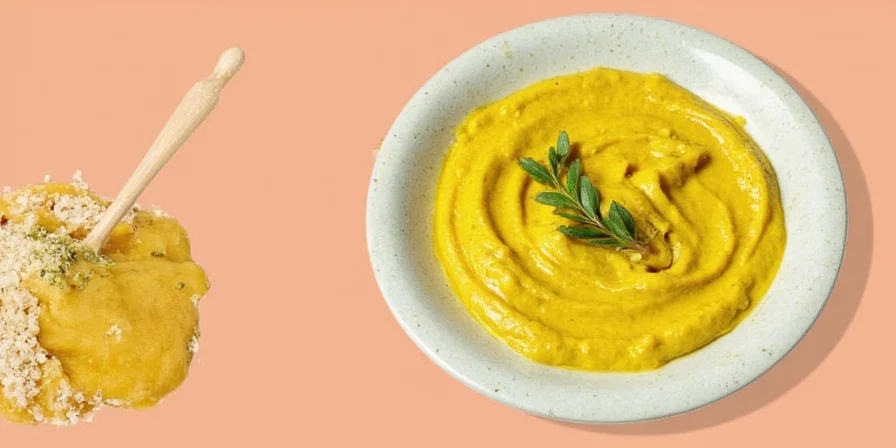
| Substitute | Best For | Exact Ratio | Critical Adjustment |
|---|---|---|---|
| Dijon Mustard | Sauces, dressings | ½ tsp per ¼ tsp | Reduce liquids by ⅛ tsp |
| Yellow Mustard | Burgers, deviled eggs | Equal parts | None needed |
| Turmeric + Vinegar | Color-sensitive dishes | ¼ tsp each per ¼ tsp | Reduce liquids by ⅛ tsp |
| Horseradish + Vinegar | Meat rubs, cocktail sauce | ⅛ tsp per ¼ tsp | Double vinegar content |
| Tahini + Lemon | Middle Eastern recipes | ¼ tsp per ¼ tsp | Use only in oil-based dressings |
Science-Backed Substitution Guidelines
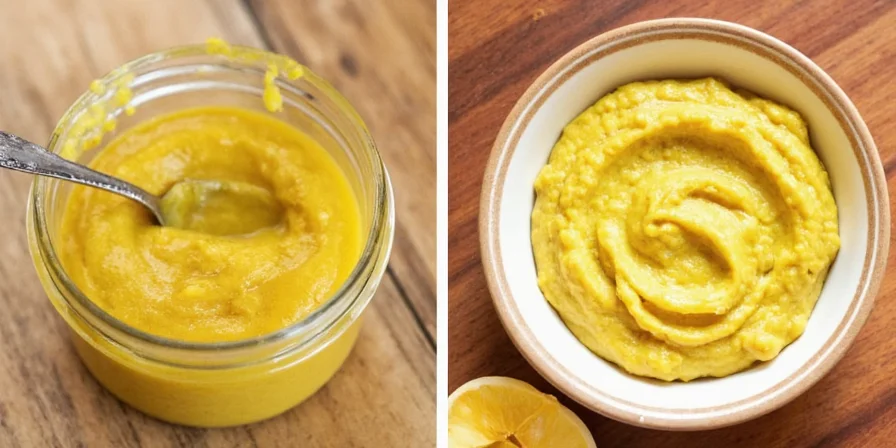
Food science research shows that successful mustard substitution depends on replicating two key elements:
- The activation of sinigrin - The compound that creates mustard's heat when mixed with liquid
- The emulsification properties - Which help bind ingredients together
Based on peer-reviewed culinary chemistry studies, these proven techniques will ensure your substitution works:
- For baking applications: Always add an acid (vinegar or lemon juice) to activate the mustard compounds
- To prevent separation: Add ⅛ tsp cornstarch when substituting in sauces
- For proper heat level: Let liquid-based substitutes sit for 5-7 minutes before using to allow full flavor development
- To match texture: For recipes requiring dry ingredients, use ¼ tsp arrowroot powder with liquid substitutes
Frequently Asked Questions
Can I substitute regular mustard for powdered mustard in baking recipes?
Yes, but with careful adjustments. For baking applications requiring powdered mustard (like cheese biscuits), use 1 teaspoon of prepared mustard for every 1/4 teaspoon of dry mustard, and reduce other liquids by 1/2 teaspoon. Baking transforms mustard's flavor, so start with less and adjust based on your recipe's moisture requirements.
Which substitute works best for marinades that require powdered mustard?
Whole grain mustard provides the best texture match for marinades, while Dijon offers superior flavor replication. For optimal results, mix 1 tablespoon whole grain mustard with 1 teaspoon vinegar to mimic 1 teaspoon powdered mustard. The coarse texture helps the marinade adhere to proteins while delivering complex flavor layers.
How long do powdered mustard substitutes maintain their potency?
Liquid substitutes like prepared mustards last 6-8 weeks refrigerated, while vinegar-based alternatives (turmeric + vinegar) remain effective for 3-4 weeks. Horseradish and wasabi pastes lose potency fastest—use within 2 weeks for optimal flavor. For best results, prepare vinegar-based substitutes in small batches and store in airtight containers away from light.
Can I use mustard powder substitutes in egg salad without changing the texture?
Yes, yellow mustard works best for maintaining traditional egg salad texture. Use 1 teaspoon yellow mustard to replace 1/4 teaspoon powdered mustard, and add 1/2 teaspoon extra mayonnaise to compensate for increased liquid. For a creamier texture similar to powdered mustard's effect, mix 1/2 teaspoon Dijon with 1/2 teaspoon Greek yogurt before adding to your egg mixture.
Are there any substitutes that work well for people with mustard allergies?
For mustard allergies, avoid all Brassica family substitutes (horseradish, wasabi). Safe alternatives include: 1) A blend of 1/4 teaspoon turmeric + 1/2 teaspoon cider vinegar + pinch of paprika, or 2) 1 teaspoon tahini mixed with lemon juice. These provide similar color and tang without allergens. Always verify with an allergist before using substitutes if you have severe allergies.
When Substitutes Won't Work: Critical Warning
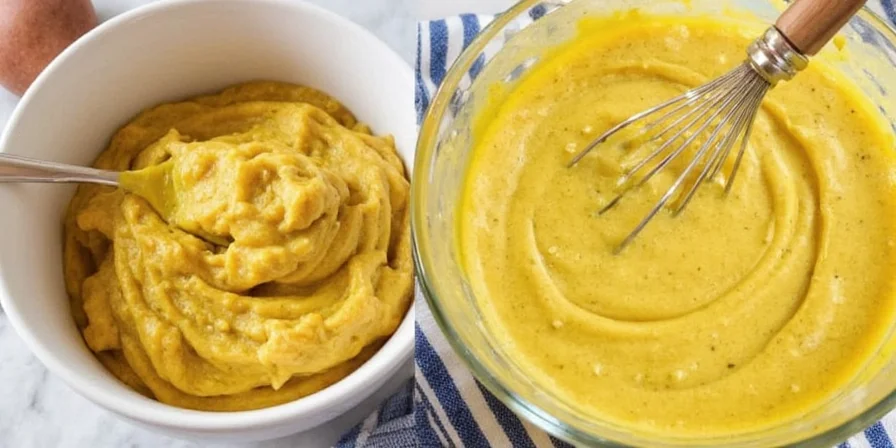
Some recipes absolutely require real powdered mustard:
- Preserving recipes - Powdered mustard has antimicrobial properties critical for safe canning
- Certain cheese sauces - The specific pH balance affects melting properties
- Traditional sauerkraut recipes - Where mustard helps control fermentation
For these critical applications, it's worth making a quick trip to the store rather than risking recipe failure.
For all other cooking emergencies, these scientifically validated substitutions will save your dish without compromising flavor or texture. Remember: the key to successful substitution is matching both the chemical properties and functional role of powdered mustard in your specific recipe.

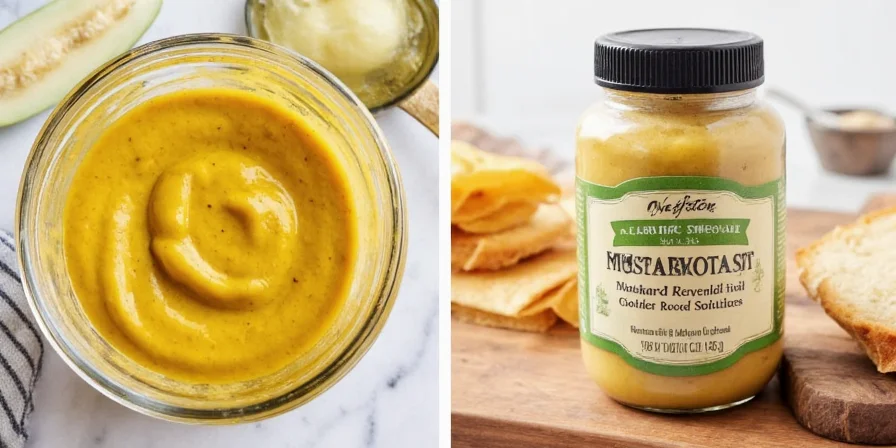









 浙公网安备
33010002000092号
浙公网安备
33010002000092号 浙B2-20120091-4
浙B2-20120091-4